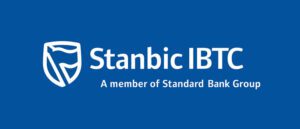


CBN sets 31.75% lending rate, lifts suspension on Banks borrowing
The Central Bank of Nigeria (CBN) has lifted the suspension on banks borrowing from its window, known as the Standing Lending Facility (SLF), pegging the lending rate at 31.75 percent in response to the decisions made at the 296th meeting of the Monetary Policy Committee (MPC).
Consequently, the apex bank called on the authorised dealers to send their request for SLF through the Scripless Securities Settlement System (S4) within the operating hours of 5.00 pm to 6.30 pm.
This is contained in a circular signed by director of the financial markets department, Omolara O. Duke, which takes immediate effect.
Additionally, dealers may access the Intraday Liquidity Facility (ILF) at no cost if repaid on the same day. Tilewa Adebajo, Chief Executive Officer (CEO) of The CFG Advisory, said the development would lead to improved liquidity in the interbank markets.
However, unsettled ILF will incur a 5.00 percent penalty, and the system will automatically convert such cases to SLF at a rate of 36.75 percent. The CBN has also reintroduced collateral execution, rediscounting instruments pledged by participants at a penal rate, as specified in the approved repo guidelines.
Implications: The rise in the SLF rate to 31.75 percent reflects the CBN’s intent to reduce excess liquidity in the market. As banks face higher borrowing costs, interest rates on loans and credit facilities may increase. This could dampen borrowing by businesses and consumers, potentially slowing economic growth. For households, the impact may be felt through higher loan costs, which could reduce disposable income and consumer spending.
Standing Deposit Facility (SDF): The MPC also adjusted the Asymmetric Corridor to +500/-100 basis points from the previous +100/-300 basis points around the MPR. Consequently, the SDF rate is set at 25.75 percent. For Commercial and Merchant Banks, this rate applies to deposits up to N3.00 billion, with a reduced rate of 19.00 percent for excess deposits. Payment Service Banks will receive the same SDF rate for deposits up to N1.50 billion, with a 19.00 percent rate for any amounts above this threshold.
What this means is that the new SDF rates encourage banks to deposit surplus funds with the CBN, thereby reducing excess liquidity in the economy. While this measure helps in curbing inflation, it may also limit the funds available for lending, impacting credit availability for businesses and consumers. For households, this could translate into fewer credit options and higher interest rates, which may constrain spending and overall economic activity
These measures are part of the CBN’s broader strategy to manage liquidity effectively while maintaining a balance between economic growth and inflation control. The adjustments take immediate effect, reinforcing the CBN’s commitment to ensuring financial stability in the face of evolving economic challenges.



